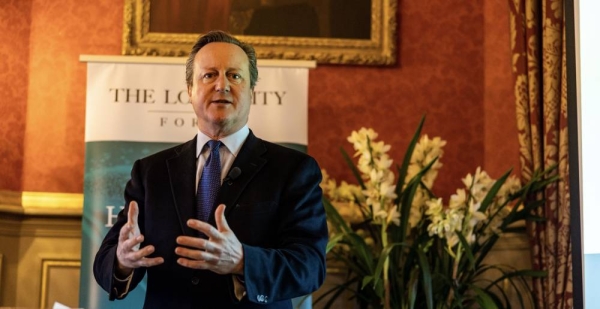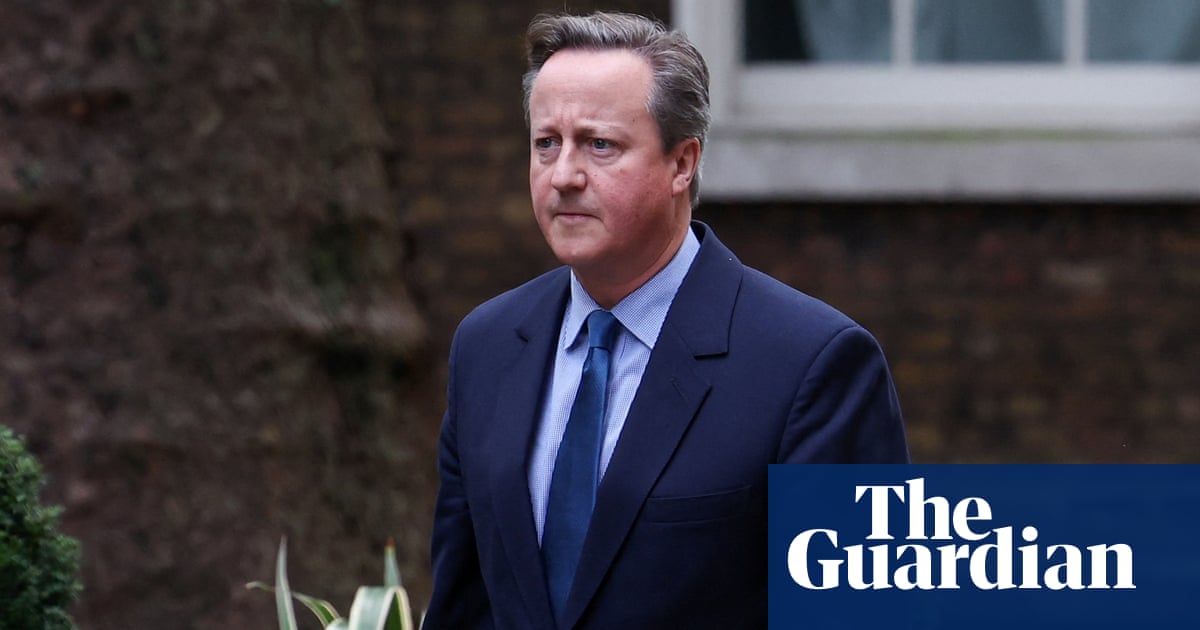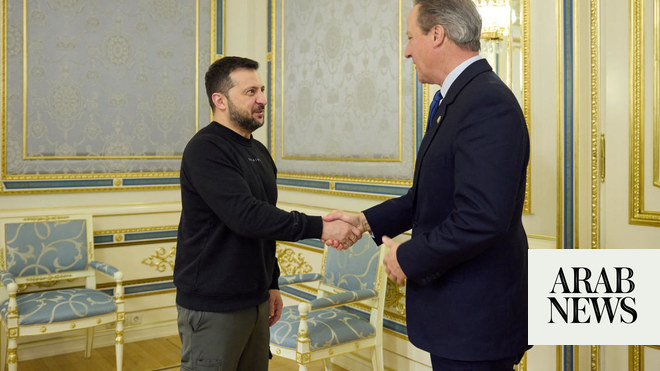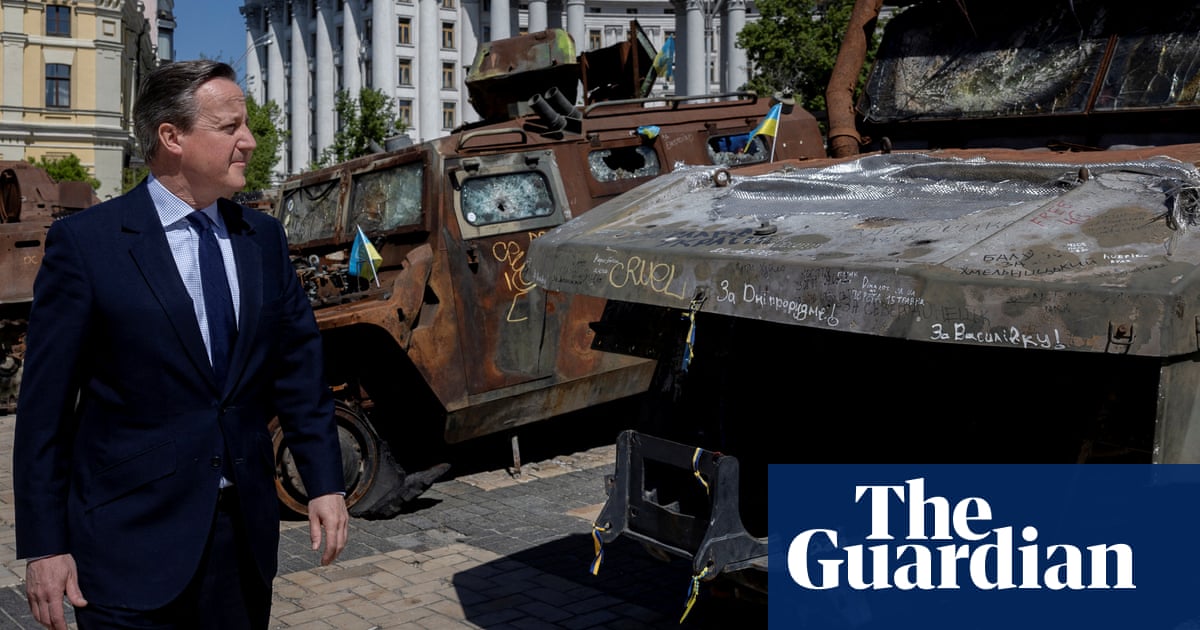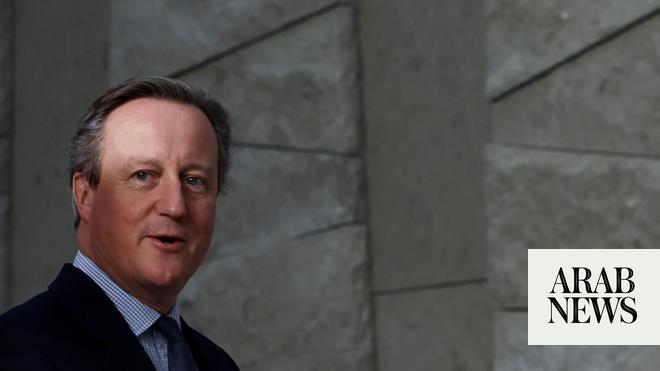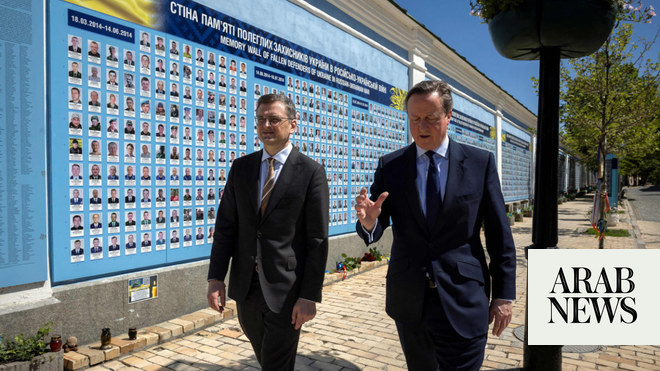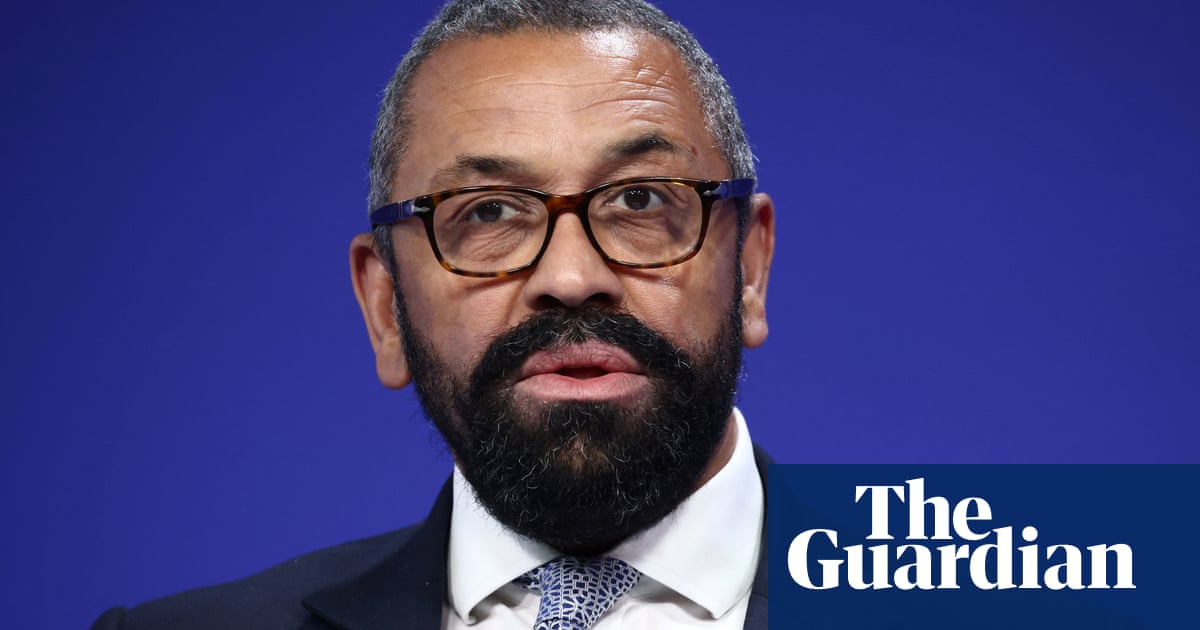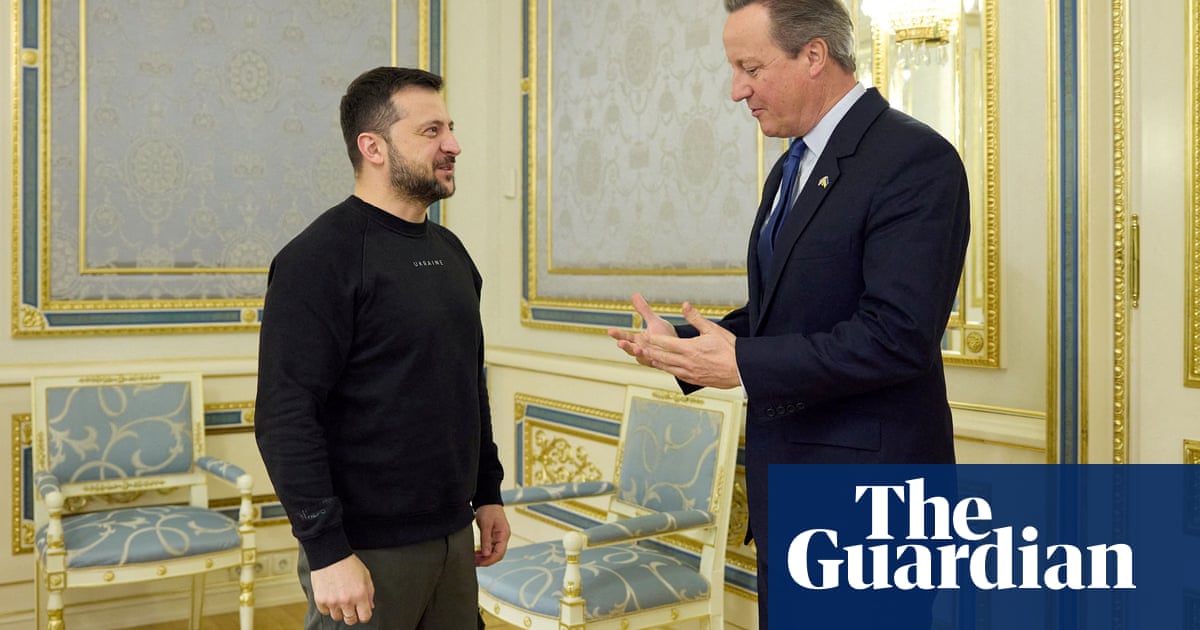
David Cameron has travelled to Kyiv for his first trip as UK foreign secretary in an unannounced visit just days after his surprise appointment, but did not make any significant announcement about fresh military aid.
As he met Ukraine’s president, Volodymyr Zelenskiy, on Thursday, Cameron pledged that long-term British support for Ukraine would continue.
“I wanted this to be my first trip personally. I admire the strength and determination of the Ukrainian people,” said Cameron at the beginning of the meeting, video footage of which was released by the president’s office.
“What I wanted to say by being here is that we will continue to give you the moral support, the diplomatic support, the economic support but above all the military support that you need, not just this year and next year but for as long as it takes,” said Cameron.
However, there was no immediate public commitment on future funding of military aid to Ukraine. An announcement on whether the UK will continue with its £2.3bn a year level of arms supply is expected in next Wednesday’s autumn statement from the chancellor.
The former prime minister was made foreign secretary by Rishi Sunak on Monday and appointed to the House of Lords so he could take up the role.
In Ukraine concern has grown about global support, with conflict in the Middle East taking attention away from the country, and longer-term questions about western financial backing as the US heads into an election cycle.
“Now, you know, the world is not focused on the situation on our battlefield in Ukraine, and is divided for focus,” said Zelenskiy. “It really doesn’t help, and we are thankful that UK has always supported Ukraine.”
He later wrote on Telegram: “Weapons for the front, strengthening of air defence, protection of our people and critical infrastructure. I am grateful to the UK for its support!”
Western officials, speaking on condition on anonymity on Thursday, acknowledged that Ukraine’s counteroffensive on the Zaporizhzhia front has essentially culminated, although one said “three brigades” were believed to have crossed the Dnipro River near Kherson.
“Neither side is capable of mounting a decisive operation on land,” one of the officials said, and it appeared that “a prolonged conflict” was likely to follow in which long-term US and European military aid would be crucial.
Nevertheless, the brigades had established a position across the Dnipro that the Russians have proved unable to dislodge, although it was unclear, they added, how much armour the Ukrainian military had been able to get across the river.
However, despite the cross-river success, the officials said they expected Ukraine would most likely only be able to make incremental “village at a time” progress, a similar pace to summer efforts south of Orikhiv and Velyka Novosilka.
They estimated Russia had sustained casualties of between 300,000 and 400,000 killed and wounded in the war in Ukraine so far, and in the heaviest fighting at Avdiivka was losing between 500 and 1,000 a day.
Britain has been one of Ukraine’s most vocal supporters since the beginning of the war. The former prime minister Boris Johnson won many supporters in the country for his frequent visits and strong rhetoric over Russian aggression. Britain has also given billions of pounds in assistance and provided training for tens of thousands of Ukrainian troops.
Cameron said: “I had some disagreements with my friend Boris Johnson, but we’ve known each other for 40 years and his support was the finest thing that he and his governments did.”
Cameron also met Ukraine’s foreign minister, Dmytro Kuleba, in Kyiv. “The UK remains steadfast in providing Ukraine with weapons, increasing their co-production, and ridding the Black Sea of Russian threats,” Kuleba wrote on X, formerly Twitter.




